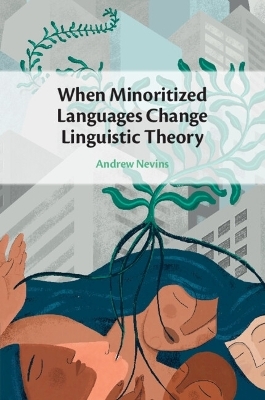
When Minoritized Languages Change Linguistic Theory
Cambridge University Press (Verlag)
978-1-009-01489-2 (ISBN)
- Noch nicht erschienen (ca. März 2025)
- Versandkostenfrei innerhalb Deutschlands
- Auch auf Rechnung
- Verfügbarkeit in der Filiale vor Ort prüfen
- Artikel merken
For decades, a small set of major world languages have formed the basis of the vast majority of linguistic theory. However, minoritized languages can also provide fascinating contributions to our understanding of the human language faculty. This pioneering book explores the transformative effect minoritized languages have on mainstream linguistic theory, which, with their typically unusual syntactic, morphological and phonological properties, challenge and question frameworks that were developed largely to account for more widely-studied languages. The chapters address the four main pillars of linguistic theory – syntax, semantics, phonology, and morphology – and provide plenty of case studies to show how minoritized language can disrupt assumptions, and lead to modifications of the theory itself. It is illustrated with examples from a range of languages, and is written in an engaging and accessible style, making it essential reading for both students and researchers of theoretical syntax, phonology and morphology, and language policy and politics.
Andrew Nevins is Professor of Language Sciences at University College London. He is the author of Locality in Vowel Harmony (2010, MIT Press) and co-author of Morphotactics: The Structure of Spellout and Basque Auxiliaries (2012, Springer).
List of figures; Acknowledgements; List of abbreviations; 1. Expanding the canon: minoritization in the world and in linguistic theory; 2. Indexical shift in Zazaki and Uyghur; 3. Why ergative case requires structure in Basque and Ch'ol; 4. Closest conjunct agreement in Slovenian and Xhosa; 5. Configurationality of objects in Chichewa and Warlpiri; 6. Partial nasality in Maxakalí and Kaingang; 7. Symmetric hands in sign language phonologies; 8. Number-encoding on verbs in Hiaki and Chechen; 9. Conclusion: towards healthy futures in the language sciences; Bibliography; Index.
| Erscheint lt. Verlag | 20.3.2025 |
|---|---|
| Zusatzinfo | Worked examples or Exercises |
| Verlagsort | Cambridge |
| Sprache | englisch |
| Themenwelt | Geisteswissenschaften ► Sprach- / Literaturwissenschaft ► Sprachwissenschaft |
| ISBN-10 | 1-009-01489-7 / 1009014897 |
| ISBN-13 | 978-1-009-01489-2 / 9781009014892 |
| Zustand | Neuware |
| Informationen gemäß Produktsicherheitsverordnung (GPSR) | |
| Haben Sie eine Frage zum Produkt? |
aus dem Bereich


